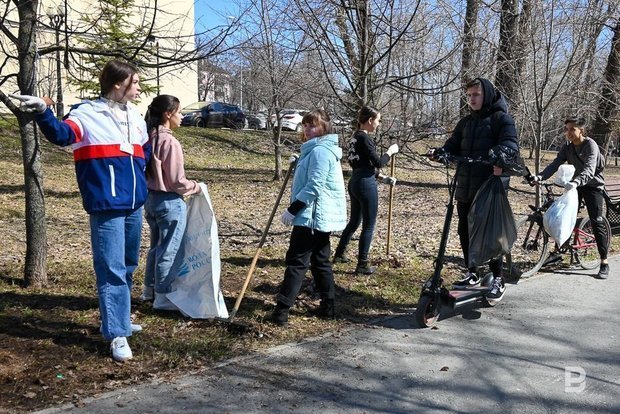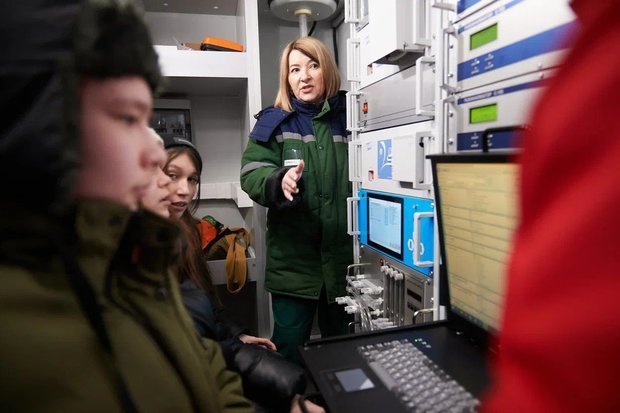Galina Akhmerova: ‘Now even a request to wipe the board can be considered a violation of the rights of a child’
There is a growing demand for engineers in Russia, and Vladimir Putin has repeatedly spoken about the tasks of developing specialised education. After all, the solution of these issues is especially important today — in the conditions of total import substitution and the refusal of many carriers of technologies from their supply and service in our country. Galina Akhmerova, the founder of Darwin Foundation for the Development of Accessibility of Modern Education and creator of Round platform, discusses how the initiative to return Technical Drawing and labour education to schools can affect the situation in the author's column for Realnoe Vremya.
Technical Drawing and labour education back to schools
The issue of the quality of engineering education was raised at a meeting of Russia's President Vladimir Putin with the heads of advanced schools and industrial partners back in September last year. Everyone unanimously noted the need to raise the prestige of technical professions, as well as to create special engineering classes (along with aviation and shipbuilding). A similar request is voiced by companies that contact us on the issue of interaction with young people.
Also with an initiative that logically continues the topic, the first deputy chairman of the State Duma Committee on Education, Yana Lantratova, turned to the head of the Ministry of Education, Sergey Kravtsov: to consider returning Technical Drawing to the school educational programme. Since 2019, this discipline has been excluded from the school curriculum.
Despite the fact that Technical Drawing, as a rule, is not the most favourite subject in school, it develops accuracy and instills spatial, technical and creative thinking, the letter states. It is these skills that lay “the foundation for further engineering education during the period of vocational guidance for schoolchildren.” Technical Drawing is not included in the compulsory school curriculum, nevertheless, the discipline is the starting point of the professional activity of engineers, architects, and designers.
“Formation of the love of work is an important part of career guidance”
It turns out that not only this discipline has disappeared from the school curriculum, but also classical labour lessons. For example, Deputy Sergey Kolunov believes that labour lessons differ from current technology lessons, since the latter are devoted to project activities rather than applied skills.
As it turned out, the following wording in the legislation hinders the classical labour education of children (understandable to the older generation): “It is prohibited to involve schoolchildren in work without parental consent.” Even a request to wipe the blackboard or wash the desks may now be considered a violation of the rights of a child.
During the years of my studies, being on duty in the classroom or canteen and joint subbotniks were common practice. Neither we nor our parents even had a thought about exploitation, such a practice, on the contrary, was supported by everyone. I am convinced that the formation of the love of work is an important part of career guidance and it cannot be theoretical and exist only on paper.
Labour education in pedagogy is a consistent set of actions aimed at:
- transferring knowledge about work and professions to children,
- developing self-service skills, mutual assistance and joint collective activity,
- on the development of elementary skills at the household level.

The essence of labour education is primarily an incentive to work. We give elementary concepts about the work of adults, about various professions, about the importance of what each of us does for society.
And here it is an integrated approach that is important, using in parallel all the tools of the educational process that both the teacher and the parent have:
- discussion,
- game,
- household work,
- excursions to production facilities and workplaces,
- technical creativity.
When children have no questions when choosing their future profession
Being a mother of three sons, and also considering the possibilities of the Round project for communicating with the younger generation in a broader format, I can say for sure how much this is in demand by the children themselves. The request for practical career guidance through excursions or possible internships consistently comes from both children and companies.
Most children do not have a real understanding of work in various fields. Lucky for those whose parents take it upon themselves to organise such labour trials at their enterprises or places of work of friends and relatives. I myself often organise such things for teenagers in my environment, and this, of course, gives a different view in the future for their professional definition.

We also see an interesting request from companies on the topic of labour dynasties. Dynasties appear in those families where the older generations really love their profession, do their business with pleasure and dedication, go to work in a good mood and talk about it with dignity, in a word, when work is a joy for people. In this case, children have no questions when choosing a future profession, they see the life of their parents as an example.
For example, now the separate nomination “Labour Dynasties” has been approved within the framework of the online festival “Transport: The Future”, dedicated to the prospects for the development of urban electric transport. The children are invited to tell about the professions of their relatives and offer a vision of their career in the field of electric transport.
With these examples, I want to emphasise the importance of the role of the parent in labour education. After all, the incident in the legislation on this topic has arisen for a reason.
Reference
The author's opinion may not coincide with the position of the editorial board of Realnoe Vremya.